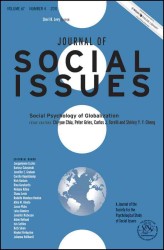- ホーム
- > 洋書
- > 英文書
- > Literary Criticism
Full Description
The Russian novel remains a subject of enduring interest for scholars, students, and general audiences. Russian novels were initially influenced by the parallel traditions of novel-writing in Britain, France, and Germany, but the Russian novel exists as its own tradition and asserts its own identity as a literary form.
To read a Russian novel often requires the fortitude to traverse many hundreds of pages and to consider profound political, philosophical, and metaphysical questions. The best-known Russian novels are also compulsively readable, providing a fascinating window into Russian culture and society at different historical periods. Readers of Russian novels marvel at the fictional world-building of innovative writers who created compelling characters and settings, realized through brilliant storytelling and stylistic virtuosity.
Major Russian novelists such as Dostoevsky, Tolstoy, and Nabokov continue to be popular and to carry intellectual prestige. But the tradition of the Russian novel extends well beyond these familiar authors and their works. This Oxford Handbook draws from a valuable tradition of critical commentary dating back to the nineteenth and early twentieth centuries and builds upon important earlier scholarship but significantly updates our understanding of the Russian novel: showcasing newer interpretive paradigms, considering works outside the canon, and extending the story of the Russian novel through Soviet times and up to the varied literary landscape of the present. The chapters also explore an increasingly expansive view of what constitutes a Russian novel, part of ongoing efforts to communicate our evolving understanding of the tradition.
Contents
Contents
About the Editors
List of Contributors
Introduction by co-editors Julie A. Buckler and Justin Weir
Part I. The History of the Russian Novel
1. First Novels, First Publics - Luba Golburt and Bella Grigoryan
2. Russian Novelists and the Mind of Europe - Lina Steiner
3. The Noncanonical Status of the Nineteenth-Century Russian Novel - William Mills Todd III
4. The Russian Novel in the Age of Modernism - Julie Curtis
5. The Soviet Novel as a Work of Grief - Evgeny Dobrenko
6. The Postmodernist Russian Novel: An Attempt at Typology - Mark Lipovetsky
7. The Contemporary Russian Novel - Jacob Emery
8. Svetlana Alexievich and the Novel Tradition - Justin Weir
Part II. Theories of the Novel and the Russian Tradition
9. Russian Formalism and the Novel - Thomas Seifrid
10. The Word about the Word: Mikhail Bakhtin's Theory of the Novel - Alexander Spektor
11. Mind Games: On Psychology in the Russian Novel - Angela Brintlinger
12. An Uneasy Compact: The Russian Novel as Philosophy - Jeff Love
13. Ethics and the Russian Novel - Gary Saul Morson
Part III. Geographies and Cultural Spaces in the Russian Novel
14. Empire and the Russian Novel - Edyta M. Bojanowska
15. Nature in the Russian Novel - Jane Costlow
16. Siberia and the Queerness of the Russian Novel - Ani Kokobobo
17. Escape Vehicles: Yiddish and the Russian Novel - Gabriella Safran
18. Race, Ethnicity, and the Russian Novel - Michael Kunichika
Part IV. Modes of Understanding and Experience in the Russian Novel
19. Seeing the (Russian) Novel -- Molly Brunson
20. The Haunted House: Spiritualism and the Realist Novel -- Ilya Vinitsky
21. Bodily Expression, Gesture, and Knowledge in the Russian Novel - Timothy Langen
22. Turgenev, Dostoevsky, Tolstoy, and Their Smalls: Children and Animals - Robin Miller
23. Coping with Matter in the Russian Novel: Anatomists, Alchemists, Geologists, and Collectors - Michal Oklot
24. Dostoevsky's Depth Theology - Yuri Corrigan
25. Grotesque Fictions: Posthumanism and the Novel - Julia Vaingurt
Part V. Ideologies in Novel Form
26. Why Don't We Read Them? The Underwater Corpus of Nineteenth-Century Russian Realist Novels - Julie A. Buckler
27. The Woman Question: Learned Noblewomen Writers - Hilde Hoogenboom
28. Crime and Terrorism in the Russian Novel - Julia Chadaga
29. Seriousness, Humor and the Contradictions of Late Socialism - Ann Komaromi
Part VI. Worlding the Russian Novel
30. The Russian Novel in English Translation - Catherine McAteer
31. Russian Novels of the Émigré Everyday - Tatyana Gershkovich
32. Global Cooling: From the Fluid Transnationalism of Ada to the Frigid Poetics of Transparent Things - Eric Naiman
33. First as Comedy, then as Nationalism: The Immigrant Post-Soviet Novel between America and Israel - Alex Moshkin and Sasha Senderovich
33. The Russophone Novel: Past, Present, and Uncertain Future - Nathan Goldstone
Index






